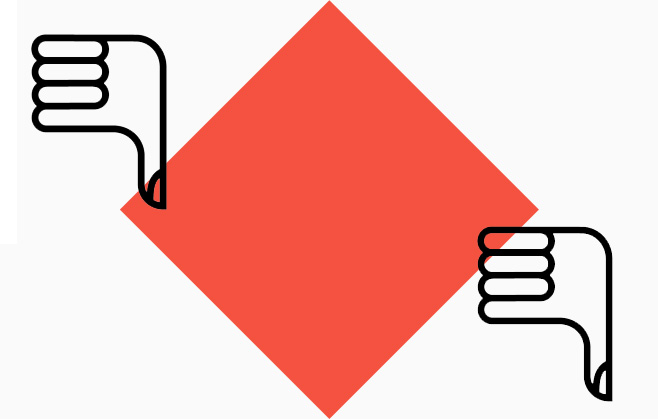
Picking up the Pieces: Brands fight back
‘The only thing worse than being talked about it not being talked about.’ Oscar Wilde’s classic words often resonate with us at The Practice- we’re always intent on ensuring our clients receive the positive publicity they deserve.
But how do companies respond to a bout (or several) bouts of negative press? Bouncing back from online or public beratement is no easy feat, and how your image recovers largely depends on several key factors: the scale of damage, a well-thought and well-timed damage control strategy, and last but by no means least- budget. With these three elements in place, it can often work in a brand’s favour to execute a number of campaigns, advertising messages or deals to assuage the backlash, and most importantly, maintain customer retention and loyalty. Today, we’re examining two companies who are fighting their way back to the top.
The first, and a prime example of tackling negativity head on, is seen from McDonald’s. It’s no secret that the fast-food chain has been inundated in the past with obesity lawsuits, banned adverts due to misleading claims, even coming under fire in Morgan Spurlock’s documentary ‘Super Size Me’. After a string of ‘fat-epidemic’-related criticism, McDonalds has been doing all it can to transform its image. In attempts to highlight ethics, the company paid to appear top of Twitter’s trending topics, driving traffic to a series of advertisements with stories of its real-life suppliers, growers and farmers. ‘Authenticity’ was McDonald’s buzzword, and ad execs certainly did a good job in outlining every angle of the supply-chain, cleverly eradicating any notions of whitewash. Conversation was encouraged with the hash tag #McDStories, although this quickly and unexpectedly escalated into horror stories about the McDonald’s service, food and brand, forcing its removal from Twitter!
Aside from social media and advertising campaigns that concurrently helped and hindered McDonalds’ marketing efforts, the conglomerate invested in a failsafe tactic- remodeling its restaurants and updating its menus. By pushing the ‘green’ angle and enhancing its nutritional stance, the brand has been able to mark its position in a more conscious world. The result? 2011 saw the average free-standing McDonald’s restaurant generate $2.6 million in sales in the US alone, up 13 per cent over a three-year period. Now, they occupy a 17 per cent market share of the limited-service restaurant industry, (America’s largest), and as much as Subway, Starbucks, Burger King and Wendy’s combined. Furthermore, their $2 billion advertising budget means that most likely, things are only set to soar as 2013 continues.
Despite negative claims, if there’s one brand that can win our hearts every time, it’s Starbucks. The fast-food outlet is currently racked with negative attention in light of recent tax-avoidance allegations. The coffee-shop chain is hitting back with more loyalty-based schemes including its most recent campaign ‘Mondays can be great’, which we at The Practice looked at with disgruntled cynicism upon seeing in our inboxes! The incentive offers customers a latte for £1.50 on Monday mornings, right up until the 18th February. While we feel it’s a less than inspiring offer, the accompanying advert is definitely worth a watch. Created by AMV BBDO, the ad celebrates several achievements that have all occurred on Mondays, including the opening of the first cinema, man first walking on the moon, and the first ever chime of Big Ben.
The truth is that multi-national brands will always come under scrutiny in one way or another, or even face illegitimate negative PR from rival companies. But how will we ever be able to fully quantify the blow to their reputations, and are the dents made even large enough to have considerable impact? The fact remains that we as customers will arguably always remain loyal to the brands we love, simply because we value them as part of our everyday lives.
Do you feel that McDonalds and Starbucks have done or are doing enough in response to negative public reaction? And do you think bad press can be key to improving corporate identity? We’d love to hear your opinions as always, so please tweet to us @PracticeDigital and comment via our Facebook page.




